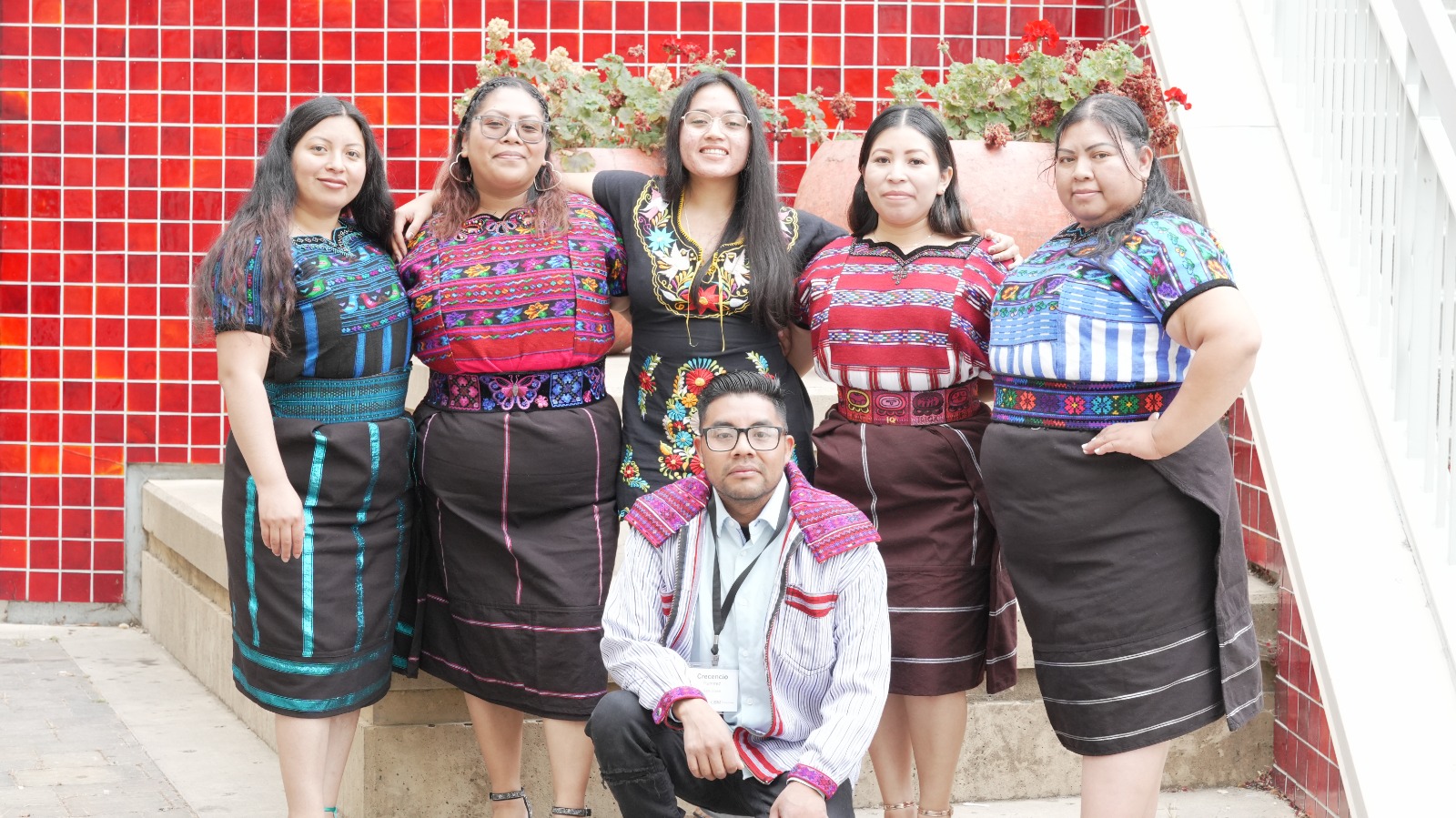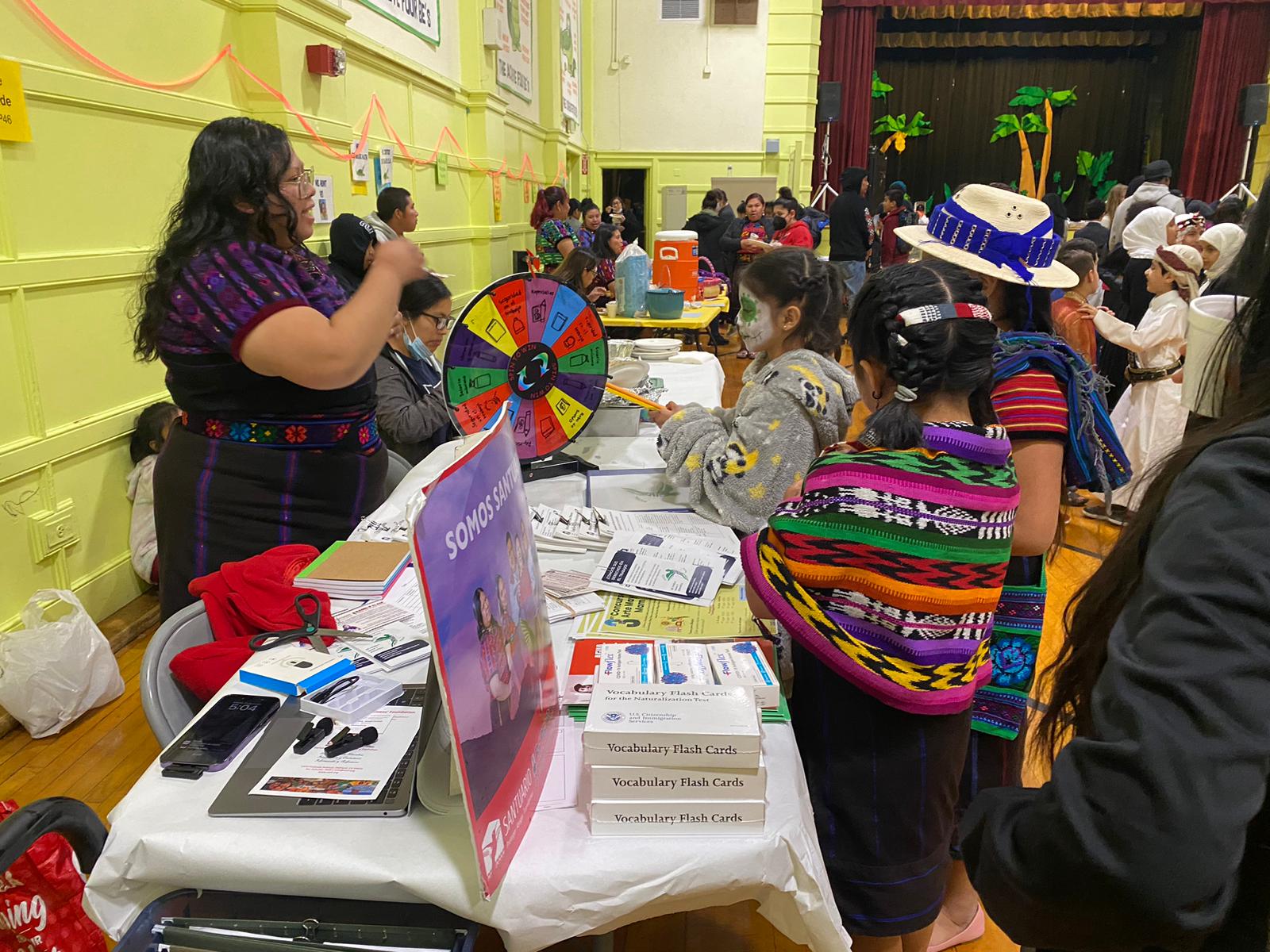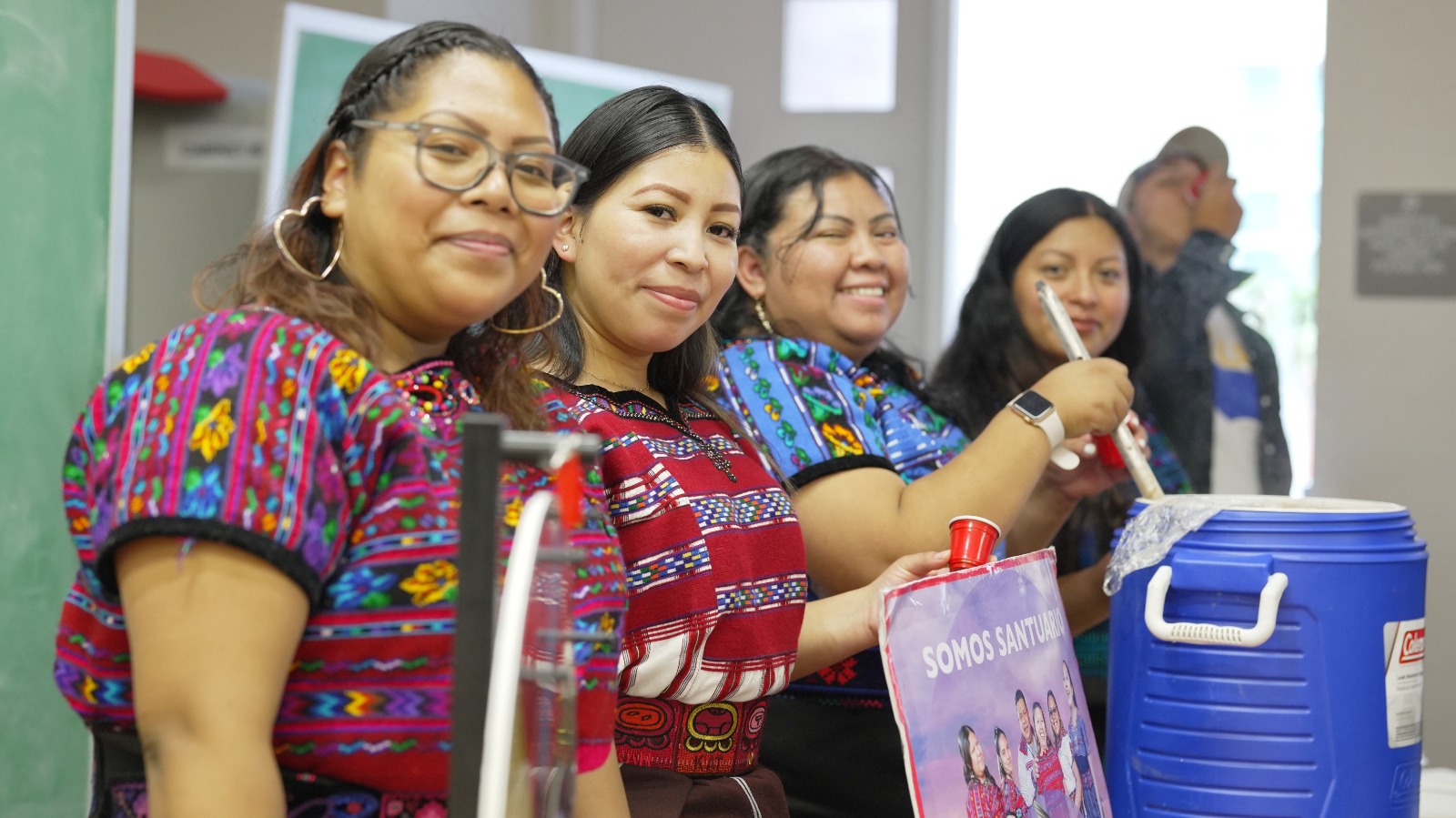Celebrating Indigenous and Latinx Voices
Partner Spotlight – East Bay Sanctuary Covenant’s Mayan Voices Program
Contributors: Esmeralda Mendoza, Marta Alicia Mendoza, Rosalba Lorenzo, Catarina Mendoza Ramirez, Maya Kandell
Over 50 years ago, President Lynden Johnson proclaimed a week to celebrate the contributions of “people of Hispanic descent” to the United States, which was then expanded to a month in the 1980s. Every year between September 15 and October 15, Hispanic Heritage Month offers a space to uplift and celebrate the diverse contributions of Latinx populations across the United States and around the world, while also acknowledging the complexities embedded within it.
While the term “Hispanic” is used on the U.S. Census, it has limitations and for many, conflates language with identity while also glossing over the colonial history that links Latin and Central America to Spain in the first place. And like with many labels, its limitations can have material consequences in people’s lives.
Not all people that identify as Hispanic or Latinx speak Spanish. Yet many of the non-English health resources available to Latinx immigrants are in Spanish. This has major implications within our health system for Indigenous communities and their ability to access quality health care and information, a reality that has been on clear display throughout the COVID-19 pandemic. For many Latinx communities, along with other Black and brown immigrant groups, a lack of access to vaccination and linguistically and culturally relevant community-based support services drives devastating health impacts.

As a part of the Vaccine Equity and Access Program (VEAP), Community Catalyst works in partnership with a diverse group of community-based organizations (CBOs) across the country to combat vaccine hesitancy and increase the availability of vaccine education resources. One of our partners is the East Bay Sanctuary Covenant (EBSC), who we sat down with to discuss their Mayan Voces program, which is addressing a critical need among Indigenous and immigrant communities in the East Bay region of California. For the Mayan Guatemalan community, also known as Mam, the barriers to quality health care are compounded. Not all members of the Mam-speaking community speak English or Spanish. According to a 2020 COVID testing initiative from the University of California San Francisco, the community had one of the highest rates of COVID antibody prevalence compared to any other demographic, with over 25% of the Mam-speaking community testing positive for COVID antibodies.
We had the opportunity to speak with EBSC’s staff about their work and community. Our conversation has been lightly edited for length and clarity.
How does or doesn’t your community feel represented during Hispanic Heritage Month?
Our community Maya Mam does not often get recognized. When people talk about Hispanic Heritage month, they mostly think about Spanish speakers and mostly focus on Mexico, but the Hispanic/Latino community is complex and diverse, and Indigenous people play a huge but often unrecognized role. We want Indigenous peoples of Latin American countries to be acknowledged when we talk about Hispanic Heritage. We refuse to be forgotten and we are not a relic of the past; we are building thriving communities across the Americas. Indigenous people are the heart of each country because they are natives of the land and should be recognized. Our group reinforces that each of our voices matters as we inform other organizations and communities that the Mam community is here in the Bay Area and all over the country. All of our collaborations have created an impact on other organizations and communities who didn’t know the Mam community existed.

Can you share a story or project that highlights your organization’s role within the community and your community’s response to the health justice movement?
The Voces Mayas group started as a dream. Our dream was to support people in need due to the experience we have lived as immigrants. When each of us arrived in the U.S. we didn’t know our rights; we didn’t know how to protect our health or where to access healthcare in this country. We didn’t know the laws or even where to begin to look for help. We suffered exploitation due to this lack of information, from being taken advantage of as farm workers to being extorted by legal contracts we could not understand. We created Radio B’alam, the only Mam language radio station in Oakland, to address this lack of information in our community and help people know their rights and the resources available to them.
Now, we are proud to be in partnership with La Clínica de la Raza, Casa CHE to share key health information about COVID and flu vaccines and prevention to help keep our community safe, which includes broadcasts on Radio B’alam. Our last show with La Clínica engaged 7,300 people! We do this work to give our community quality information in our own language and help build trust with providers like La Clínica, as well as to combat rumors and misinformation about health that inevitably harm our people.
What hurdles or barriers are the communities you work with/are part of still facing in the healthcare system?
One of the biggest obstacles in our community is a lack of education or opportunity to go to school. Even though many of us have a strong desire to gain more education and advance professionally, we sometimes don’t have the level of education to meet basic job requirements. If someone doesn’t speak English and has a low level of education many doors are closed for them. It’s even more difficult if they don’t speak Spanish, only Mam. Even if they want to make an appointment to get a COVID vaccine or go to the doctor, it’s difficult because they don’t know how to dial the number or speak to a clinic. People like that are the most rejected by our society. For this reason, we are very proud to help the community and those who most need our support, even though we ourselves don’t all have a high level of education.
The biggest barrier we continue to see in health care regarding our community is the language.
Professionals in the Bay Area are still learning that the Mam community exists, that we have our own language, and that not all of us speak Spanish. Those who do know about us often think that Mam is just one language and whoever speaks it will understand each other, but, unfortunately, that is wrong. Mam has a variety of dialects and people need access to interpreters in the correct dialect.
People also need to feel their traditions are understood to have trust in our healthcare system and feel comfortable accessing health resources. Many of our own traditions are not known or respected by the healthcare system. For example, when women in our Maya Mam community have babies, they are not allowed to leave the house for 20 days. However, doctors don’t generally know about or respect that custom, and women are obligated to go to checkups almost immediately after giving birth.
How are your community’s identities and culture currently being centered in the health justice movement?
Indigenous communities like ours continue to be excluded in the health justice movement. It’s thanks to groups like Voces Mayas and Radio B’alam that our voices are being empowered. We want to be included and have a more visible presence in the movement for health justice. We have distinct languages, cultures, and needs that need to be recognized for our people to fully access a just health system.

Who do you feel is left out when we talk about Latinx/Hispanic identities and heritage?
We think all Indigenous cultures are being left out. People don’t speak much about the Maya Mam, Maya Quiche, Zapotec, Mayas from Chiapas, Nahuas, Xincas, and many other Indigenous immigrant groups. People in our society don’t talk about our traditions and accomplishments or recognize that we are natives of this land. People just think that we are a minority. There is an expectation that we assimilate into a broader Latino identity and U.S. society just thinks or assumes we are all Spanish speakers when that is not our maternal language. Many of us don’t speak Spanish or didn’t learn Spanish until arriving in the United States.
What inspires and moves you about the communities you work with?
What inspires us is the culture and traditions our ancestors left behind. We are proud of being Mayan. We are proud to show the world we exist and are not in the shadows anymore. Our community is strong and tight knit. When something bad happens to one of our community members, we all show up to help. We are strong despite the barriers we face. We fight for what we think we deserve and what we are worth. We no longer want to be left behind. We want a voice, and we are being recognized little by little regarding our resistance to losing our culture and bringing it to a new country that is not ours. We are proud to be called Maya Mam. We are proud of our dialect.
Despite all the obstacles we have faced, we love to help the community. While we are just a part of the solution to a complicated set of problems, hearing people’s gratitude for the work we do motivates us and helps us continue to grow.
Through EBSC’s Mayan Voices program, EBSC provides immigrant communities resources to navigate complex systems in the U.S., like know your rights materials, information on accessing healthcare, and vaccine education. Their services are free or extremely low cost, and no one is ever turned away for lack of ability to pay. Resources are also accessible in indigenous languages such as Mam and are accessed through trusted channels like radio, live-streaming, and in-person outreach from EBSC’s multilingual team.